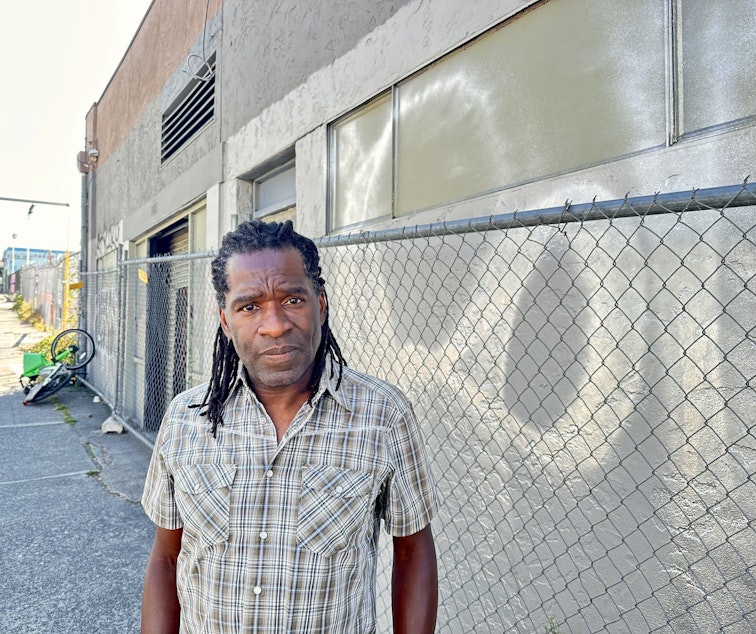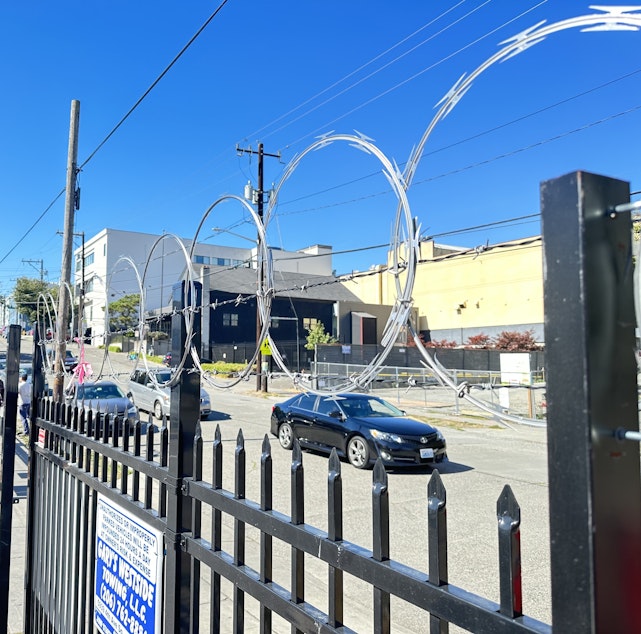'When I walk to school, I can see people shooting up.' How Seattle's drug crisis drives election debate

J
oe Clark lives two blocks from Summit Sierra High School, located on King Street in Seattle’s Chinatown-International District.
The neighborhood always felt safe, Clark says, until his daughter Julienne began sharing alarming stories about her walk to the school.
"'When I walk to school, I can see people shooting up in their neck to get a vein, and if they can't find a vein in their neck, you see them bent over, looking between their toes,'” Clark recalls Julienne saying to him.
Bearing witness to the suffering of people struggling with addiction is just one part of his daughter's story, he adds, that has led to her being too afraid to walk to school by herself.
Sponsored
“For her, it escalated to a different level of being followed, of things being thrown at her, things said to her that are inappropriate for a 15-, 16-year-old girl to hear,” Clark says.
Sponsored
Stories like Clark's are one reason why drug policy is now at the center of this year’s city council races. Voters tell pollsters drugs are a top issue, but what exactly do they want?
RELATED: Seattle 'poised' to get serious about public drug use, Mayor Harrell says
The answer to that is complicated in a city like Seattle, where nearly half of respondents in a recent Crosscut/Elway poll called themselves “progressive," and where many people remember the failed “War on Drugs,” in which punitive drug policies disproportionately harmed people of color.
A walk through District 2
Nearing the corner of 12th Avenue South and South King Street, Clark suggests crossing the street to avoid walking through the middle of what looked like it could be a drug deal. He sometimes feels afraid, too, he says. But he doesn’t believe a heavier law enforcement presence is the best path forward.
Sponsored
“We need to come up with solutions to help this need that they're in, and not have more police or more police activity, because that's not going to help anyone,” he says.
Sponsored

Last spring, Clark wrote to his local representative, Councilmember Tammy Morales, asking for help. Like Clark, Morales doesn't think law enforcement is the answer. She favors drug treatment and harm reduction.
Emails went back and forth. But after a few months, the emails from Morales's office just stopped.
“There's been no response. And it's kind of disappointing that she runs on this platform of being a progressive, but she doesn't respond to her constituents,” Clark says.
Sponsored
KUOW contacted the staffer on the email thread for comment but did not hear back.
Morales voted against a new law passed by the council this week, which allows the Seattle city attorney to prosecute public drug use and possession cases. It emphasizes a “public health approach,” which encourages referrals to drug treatment programs. But the ordinance doesn't allocate any new funds for those programs.
“The bottom line is that this bill will not address the fentanyl crisis in any meaningful way," Morales said before casting her no vote.
"While we sit here on the dais, people are dying and we're spending a lot of energy on a bill that won't help them.”
On the other side of the drug debate is candidate Tanya Woo, an activist in the Chinatown-International District who is running to unseat Morales in District 2. She showed up before the council's drug ordinance vote on Tuesday to urge Morales and her colleagues to pass it.
Sponsored
“How many of you have had a friend die from fentanyl? We've seen too many deaths and we need something to be done. We cannot have a perfect plan be an enemy of a good plan,” she said.
Woo favors more treatment and hiring and deploying more police.
For his part, Joe Clark is thinking about the upcoming election and who he’ll support in the race for District 2.
“I don't know, I don't know,” he says.
While he's impatient with Tammy Morales, he doesn’t agree with the approach of her opponent Tanya Woo, either.
Sponsored
RELATED: Is the 'generation gap' back in Seattle City Council races? District 2 offers clues
In the meantime, Clark’s family has made a big decision. His daughter now takes a 40-minute bus ride to school in Bellevue, rather than walk the two blocks to her neighborhood high school.
But Clark still thinks about the kids at Summit Sierra who don't have a better option.
"I have the privilege to have my daughter go to a different school. What about the people who don't?"




